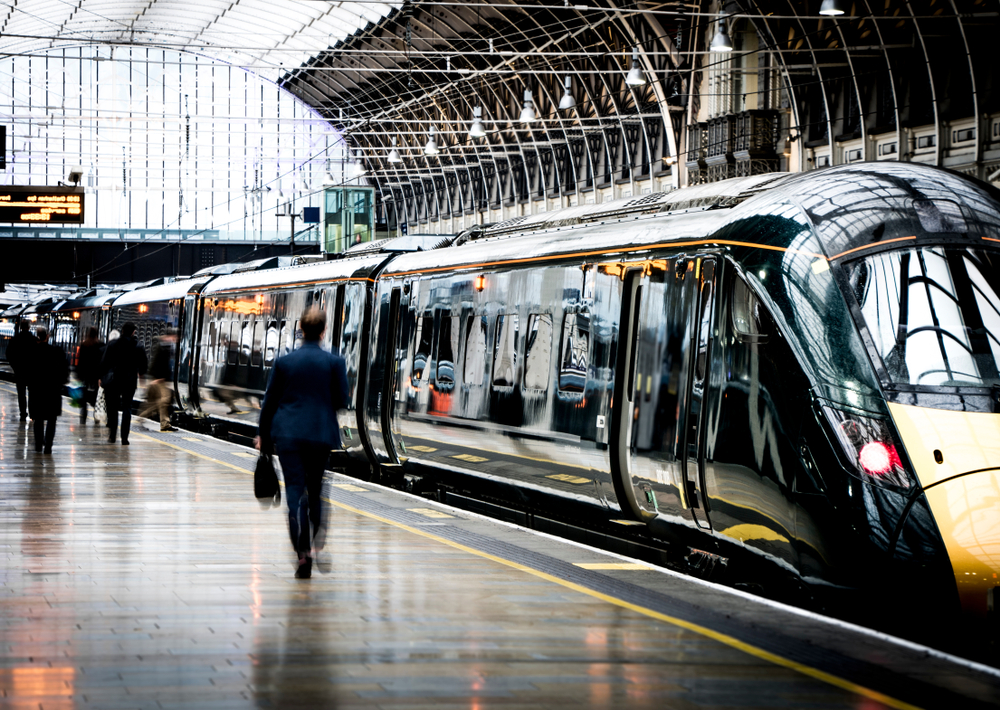The publish Rail travel costs 358% more than driving, yet triples carbon savings appeared first on TD (Journey Every day Media) Travel Daily Media.


New information has revealed the urgent dilemma of chopping prices or carbon emissions for Brits, as prepare journey is found to be 358% dearer than driving.
In response to a 4.9% rail fare hike in March 2024, many UK commuters and travellers are choosing more cost effective modes of transport. Regardless of being the bottom carbon possibility, the ever-rising prices of rail fares not justify travelling by prepare for a lot of travellers. What’s the true carbon influence, and the way a lot are individuals actually saving?
To seek out out, Progressive Power Consultants has analysed 11 journeys to main cities within the UK and in contrast the monetary and environmental prices of travelling through automobile, prepare, and airplane for 2 individuals.
The plain monetary financial savings of driving
The analysis reveals a median journey between cities within the UK prices £34.19 in petrol for 2 individuals and £156.38 for 2 prepare tickets. This implies travelling through prepare is 358% dearer than driving a automobile. See the breakdown beneath:
Is flying higher?
For 9 out of 11 journeys, flying is extra reasonably priced than taking the prepare. In a single state of affairs, it’s even cheaper to fly than drive! Shockingly, flying from London to Edinburgh prices simply £36 for 2 airplane tickets in comparison with £39.44 for a tank of petrol break up between two individuals in a automobile and £97 for 2 prepare tickets.
The environmental dilemma
Throughout the 11 journeys analysed, two flyers can be chargeable for 2.8 tonnes of CO2e, in comparison with two rail passengers producing 0.37 tonnes of CO2e, making flying 7.7 occasions as polluting as prepare journey.
Travelling 200 miles (the equal distance from Manchester to London) prices greater than triple the quantity to journey through prepare than it does for a tank of petrol break up between two individuals (£64 versus £18.91). The draw back? Driving this distance emits nearly triple the quantity of carbon than two individuals travelling through prepare (51 kgCO2e versus 18 kgCO2e).
On common, travelling through prepare emits 33 kgCO2e of carbon for 2 passengers whereas driving produces 100 kgCO2e of carbon emissions. The distinction? A whopping 67 kgCO2e – which means vehicles produce nearly triple the quantity of greenhouse gasoline emissions.
Eleanor Akers, Director and Founding father of Progressive Power Consultants, a sustainability and technique consultancy for companies, feedback:
“Each time somebody chooses the prepare over driving, they’re taking a automobile off the UK’s overcrowded roads and lowering Greenhouse Fuel emissions and air air pollution. Each time they select the prepare over flying, they’re signalling to the market that sustainability issues. Sadly, the UK’s regulatory surroundings will not be sending the identical alerts with trains paying taxes on power that airways are exempt from. As a nation, we’ve a legally binding web zero by 2050 goal. I don’t understand how we will attain this when companies and bizarre individuals are being requested to pay such a excessive value for sustainability throughout a cost-of-living disaster.
“I urge everybody to signal this petition to assist make prepare journey genuinely reasonably priced and to write down to their MP to allow them to understand how essential this concern is to each financial progress and reaching our nationwide sustainability targets. I additionally urge companies to set an inside carbon value and use this to create clear enterprise journey insurance policies to empower employees to make the sustainable selection wherever doable.”
Progressive Power Consultants is offering free sustainability session periods for companies as a part of its efforts to help a extra sustainable future. Companies searching for actionable recommendation on easy methods to develop into extra sustainable can e-book a free 15-minute session name.
The publish Rail travel costs 358% more than driving, yet triples carbon savings appeared first on Travel Daily Media.
